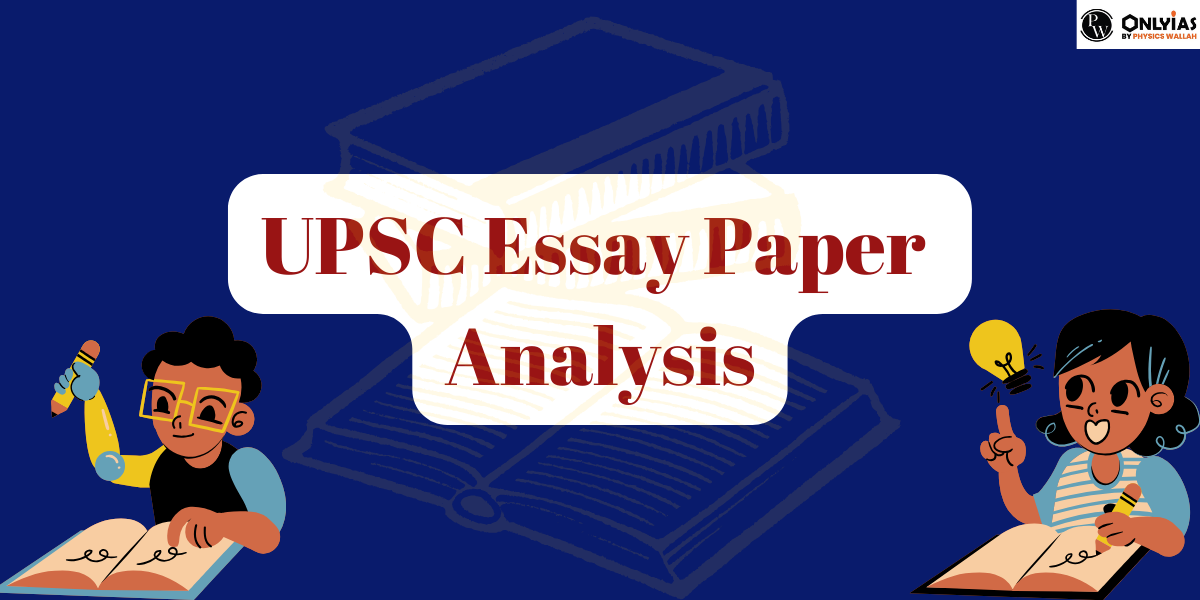![]() Gaurav Soni
Gaurav Soni
![]() October 05, 2023 03:25
October 05, 2023 03:25
![]() 6850
6850
![]() 0
0

Q6: Mathematics is the music of reason.
Approach:
Introduction:
Body:
Conclusion:
|
ANSWER:
“Without mathematics, there’s nothing you can do. Everything around you is mathematics. Everything around you is numbers.”- Shakuntala Devi
Reason acts as a common thread between mathematics and philosophy. Though in the complex world that we live in, we have become used to looking at the two disciplines as different from each other but, in essence, both mathematics and philosophy have the same goal. To find the ultimate truth and reason is the vehicle which can help us to reach the truth. Both mathematics and philosophy involve abstract reasoning and conceptual thinking. They require the ability to work with ideas, definitions, and principles that may not have direct physical counterparts.
Mathematics is often referred to as the music of reason. This is because, like music, mathematics is a universal language that transcends cultural and linguistic barriers. It is a discipline that is based on logical reasoning and deduction, and it provides a framework for understanding the world around us.
While philosophy is a broader field that explores fundamental questions about existence, knowledge, ethics, and reality, mathematics is primarily concerned with quantitative and deductive reasoning. It seeks precise, objective answers to well-defined problems. It is this aspect of mathematics that makes the reason as rhythmic, symmetrical, and harmonious as the sound of music. Thus, just like music, mathematics gives beauty, harmony, and a sense of order to reason and becomes a more authoritative text on philosophical ideas.Mathematics in India was not seen as a separate, isolated discipline; instead, it was closely intertwined with philosophical and religious thought. Ancient Indian mathematical texts, such as the Vedas, demonstrate the fusion of mathematical and philosophical reasoning. Vedic mathematics contained numerical and geometric concepts used in ritualistic practices, reflecting the belief that mathematical precision was a path to spiritual insight.
Similarly, Indian mathematicians developed complex systems of astronomy and astrology, which were deeply rooted in philosophical and cosmological ideas. The study of celestial bodies was seen as a way to understand the harmony and order of the universe, which in present time we see through purely mathematical reasons.
Thus, in Indian culture, mathematics was not seen as a purely utilitarian discipline but as a means of exploring the order and harmony of the universe, as well as understanding deeper philosophical and spiritual truths. Indian mathematicians, through their contributions and writings, integrated mathematical reasoning with philosophical and religious thought, creating a unique and profound tradition that continues to influence both mathematics and philosophy today.
This same symphony between mathematics and reason was observed by the Greek philosophers. Pythagoras founded the Pythagorean school, which combined mathematics with philosophy and mysticism. He believed that numbers and mathematical relationships underlie the structure of the universe, reflecting a deep philosophical view of the harmony and order in nature.
Similarly, Descartes is known for his philosophy of Cartesian dualism, which separates the mind and body as distinct substances. His mathematical work influenced his philosophical ideas about the precision of mathematical reasoning as a model for clear and distinct thinking. Thus, as the fields of mathematics and philosophy often intersect, particularly in areas where mathematical concepts have profound philosophical implications.
What was reasonable in ancient times remains relevant in present time too as the harmony and symphony of reason when spoken in the language of mathematics continues to mesmerize and inspire the present generations. This mathematical reasoning further inspires and informs philosophical ideas about the nature of reality, knowledge, and the role of reason in understanding the world.
In addition to its practical applications, mathematics also has aesthetic value. Mathematicians often describe mathematical concepts as beautiful or elegant. This is because mathematics has a symmetry and order that is pleasing to the eye. Mathematical patterns can be found in art, architecture, and nature, and they add to the richness and complexity of our world. See the example of different step wells, pillars, temples designed all over India using geometry.
In Mathematics, reason is rooted in a logical and systematic framework. This logical foundation ensures that mathematical conclusions are based on sound principles. The conceptual clarity and the precision with which reason thus applies helps us send our missions into space and uncover the reality that till last century was almost impossible.
In the world of finance and banking, it is the precise and critical analysis of economic logic and figures that keeps our economies afloat. It not only drives the current system but with the power of extended logic, it helps us foresee our future too. It is this utilitarian purpose of mathematical reasoning that helps nations calibrate their economies and chart out plans for further development. The projection thus made is often the cornerstone that decides the economic planning for any country or institution within.
Mathematics also plays a crucial role in our daily lives. We use mathematics when we calculate our taxes, when we measure ingredients for a recipe, and when we plan our budgets. Mathematics is essential for making informed decisions about our finances, our health, and our safety.
If mathematics is the music of reason, critical thinking is the notes that make it melodious. Mathematical thinking encourages critical examination of assumptions, evidence, and arguments. It trains individuals to evaluate the validity and reliability of information and to think critically about the world. Today, we see Indian demography not just as numbers but as an opportunity for the future as we understand by power of critical thinking what needs to be done to turn this demographic sum into dividend.
When thinking of mathematics, one may think about the complex ideas that they learnt in algebra, calculus, geometry. In real life most of us find very little utility in these subjects but if we observe more closely, everything around us is being run by mathematical logic. The things that appeal to us as aesthetical and beautiful are often linked to the Golden Ratio which is a mathematical constant which defines how certain proportions are perceived as more aesthetically pleasing than the rest. Similarly, the whole world of symmetry can be broken down into fractals. Fractals are complex mathematical objects that exhibit self-similarity at different scales. Be it a snowflake, a piece of cauliflower, or arrangement of stars in a galaxy, everything grows with fractals. Just as small notes when arranged in a particular pattern make up for a beautiful song, mathematical reason when arranged in a particular pattern opens our senses to symphonies of the universe.
However, mathematical reasoning alone is not sufficient to answer the question of ultimate truth. Here comes the various non mathematical aspects of philosophy that will make the reason and ideas more profound. One such dimension is moral and ethical dilemma. Mathematics is not equipped to address complex ethical and moral questions. It cannot determine what is right or wrong, just or unjust, as these judgments often involve subjective values and cultural norms. A scientist can make a nuclear bomb out of pure intellect, but to use it or not, or how to use it will decide the course of history.
At the same time, mathematics cannot fully capture human emotions, relationships, or the intricacies of social dynamics. Emotions and interpersonal interactions are subjective and multifaceted. When put in practice, mathematics can give projections, patterns and statistics on voting behaviour in elections but the outcome will depend on the connections and relation between the parties and voters.
Most importantly, mathematical reason is just one part of the whole philosophical reason, like a verse in the whole song. Philosophy deals with fundamental questions about existence, knowledge, reality, and meaning. These questions are philosophical in nature and require philosophical inquiry rather than mathematical proofs. Questions about the nature of consciousness, the meaning of life, or the existence of free will are philosophical topics that go beyond the scope of mathematics.
Thus, mathematics alone is insufficient to ascertain reason because reason extends beyond quantitative analysis and logical deductions. Human experience is multifaceted and encompasses aspects that are subjective, emotional, ethical, and philosophical. A holistic approach that considers multiple dimensions of reason, including ethical, emotional, and cultural perspectives, is often necessary.
We can use mathematics to make informed decisions, but at the same time we must inculcate the ethical and social sensitivities of the issue too. Reason when applied solely in the mathematical spirit will make the whole activity hollow. Many a time we see disasters and tragedies as a function of pure numbers, but what we should also be seeing is the amount of loss in terms of emotions and aspirations. Here, we need reason to go with values like empathy, compassion, and humanity.
We need to use mathematical reasoning to create harmony not within present generations but also with future generations, that is for environmental assessments and resource management. Environmental impact assessments for infrastructure projects may use mathematical models to predict ecological effects. However, ethical considerations, such as the preservation of endangered species and ecosystems, should guide decision-making.
Thus, achieving a proper balance between mathematics and reason in the context of promoting the welfare of all involves recognizing that quantitative analysis is a valuable tool, but it should be used within an ethical and human-centered framework. As Socrates would say, an unexamined life is not worth living, Surely, life cannot be only examined based on mathematical reason. There is a need to establish a more holistic approach to integrate mathematical reason with various other sensitivities like ethical considerations, social justice, emotional aspects and more importantly courage. As it is the combination of various notes, symphonies and verses that turns a song into a masterpiece.
Useful quotes:
|
<div class="new-fform">
</div>

Latest Comments